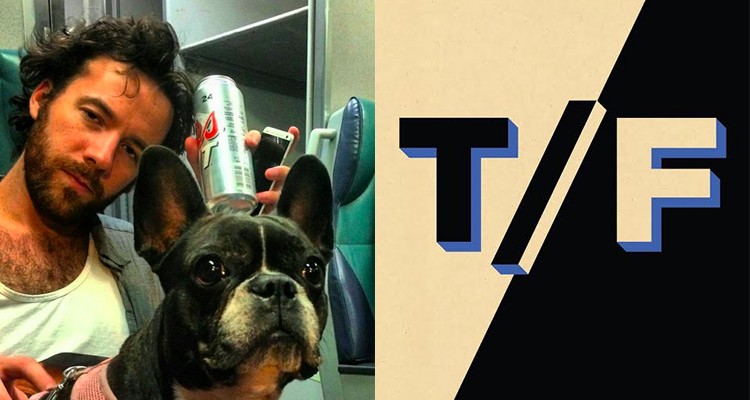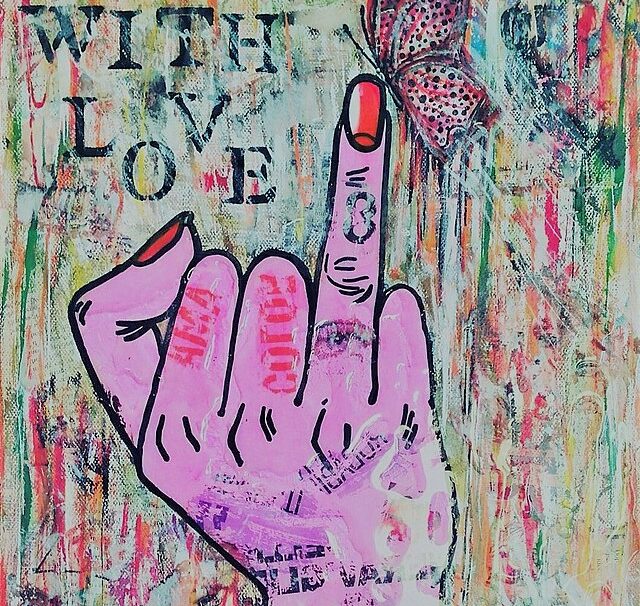interviews
A Twilight-Zone Airtightness: An Interview with Miles Klee

“Everybody’s Bluffing” by Miles Klee is featured this week in Electric Literature’s Recommended Reading, with an introduction by Matt Bell. Klee’s new collection, True False, is now available from OR Books.
Halimah Marcus: Reading “Everybody’s Bluffing,” which begins with a bank robbery, recalled for me a rich range of references in “bank robbery” genre, if we can call it that, from Tobias Wolff’s “Bullet in the Brain” to Butch Cassidy and the Sundance Kid. Did you intend to make an specific allusions or have particular influences within this genre?
Miles Klee: The influences were more cinematic than literary. My favorite bank robbery movie is Dog Day Afternoon — on paper, the ’70s New York setting and story are fairly distant from what’s happening here, in the Depression-era Midwest — though the offbeat tone and purgatorial suspense apply. What could have been a kinetic thrill ride instead boxes you into a single sweaty room and then just cranks up the heat from there. It’s also a excellent character model in terms of the uneasy collaboration between two criminals who find themselves completely overmatched by the (un)reality of their situation. OK, I ripped off this film entirely! Thank you, Sidney Lumet.
HM: Lionel tells a story of a dog “eating so intensely from a can of beans that it kept choking and puking a brown mouthful that it unfailingly bent to lick up once more.” Later, he says, “Life informs me, incessantly, of my needs. It’s repulsive. Being compelled to eat and see — to spend.” My interpretation is that he sees himself in the dog, caught in a futile struggle for control. It’s even a bit paradoxical because his body, the part of him that is alive, is the very thing he rages against. To be alive is to need. Is Lionel’s philosophical disposition connected to his being an outlaw? Do you sympathize with his point of view?
MK: I do sympathize, unfortunately. Friends and family have always noted that I’m not much for food; I can enjoy a good meal, but it never sends me into the raptures that others seem to enjoy. I eat because I have to, not because I want to. That sounds crazy to a lot of people, and it’s certainly disturbing for me. In the dog I think Lionel may have once seen Slip — an uncomplicated creature whose desires are basically automatic and beyond harnessing. But in the wake of their shootout, Lionel begins to realize that he, too, has motives he never bothered to question. His passivity was itself a choice, a surrender to Slip’s baser instincts. So suddenly the horror of life, in all its banal demands and obligations, comes flooding back into him. For years, being a stick-up man kept his thoughts grounded in the moment-to-moment, the immediacy of the score. As soon as he’s untethered from such concerns, he’s free to remember who he is — and revisit the nightmare of his mind.
HM: What about this notion that everybody’s bluffing, and everyone’s a criminal; is that an insight only other criminals can have, in a takes-one-to-know-one kind of way?
MK: I can’t confess to having led a life of many impressive crimes, so I’d venture to say it’s more universal than that. The sheer number of “fake it till you make it” and “don’t worry, no one really knows what they’re doing” platitudes floating around seems sufficient evidence. The criminal element gives substance to the dark side of those thoughts: You’re aware of laws, but what are they? Just a bluff. Just smoke. Sure, you’ll be punished for flouting them — but only if you’re caught. Keep your poker face on and you can win forever. You can con the world, outlaws have to believe, into giving you whatever you want, and at everyone else’s expense.
HM: In his introduction to the story, Matt Bell remarks on the range of styles in your writing. “Unlike most writers,” he writes, “who are so grateful to find something that succeeds that they end up mining that same patch of ground for most of their careers, Klee seems capable of writing any kind of story he wants, often starting by mimicking different genres and forms, then subverting those existing tropes to serve his own needs.” Is this range something you’ve intentionally cultivated? When write a story, to you set out to write something unlike anything you’ve written before?
MK: I’m lucky to have ideas at all. If one looks much different from another it’s surely because I’ve gone to the trouble of dressing them up in exotic new disguises — and the trappings of genre do go a long way there. When that stuff is working well, you get to be a virtuosic chameleon; the rest of the time, you’re blind in the wilderness. It’s a tricky sleight of hand, as Matt notes, that sets up an array of expectations to knock down. I’m not sure how conscious I am of this as it’s happening. Often I’ve just hit upon an inhabitable voice (e.g., the classic hardboiled narrator) that strikes me as lively and worth pursuit. I’ll let it spool out until a sharp left turn derails it — then I try to keep going. I guess that while I’m slavishly devoted to the styles and mannerisms of authors I admire, I remain a bit obsessional about narrative originality. A plotty resemblance to fiction another person has published can be unforgivable. A single repeated word can kill a whole page for me. It speaks to the fact that I’m trying to entertain and surprise myself as much as I seek to impress any theoretical reader.
HM: Lionel and Slip are both seriously injured at the opening scene. Lionel kind of dies and comes back to life, and later he discusses being unable to die. This question might be too pointed, but, are these guys immortal or are they zombies?
MK: I was irked the first time an editor read this story and called them zombies, perhaps because I’m a purist snob with no interest in zombies not directed by Romero or raised by a voodoo sorcery. I had seen these two as simply immortal, by way of some glitch in the universe. There’s a Twilight Zone airtightness to that — seeing as metaphoric immortality is a large part of what Slip hopes to attain through his behavior. And there’s a nerdy economic joke embedded there as well: inexhaustible capitalist drive in the face of total collapse, the ghostly invisible hand of the market. As the story took shape, though, I found it had the qualities of this elliptic limbo. In my head, it’s possible to read this to the end and then pick it right back up at the beginning and have it all make sense, with Slip and Lionel caught in an endless loop, and worse than that, having only the dimmest knowledge of what came before, doing it over again and again, never any release… something, again, like that poor dog.
Miles Klee was born in Brooklyn. He studied at Williams College under writers Jim Shepard, Andrea Barrett, and Paul Park, and now lives in Manhattan. His debut novel, Ivyland (OR Books 2012), drew glowing reviews and was likened to “J.G. Ballard zapped with a thousand volts of electricity” by The Wall Street Journal, later becoming a finalist in the 2013 Tournament of Books. Klee is an editor at the web culture site The Daily Dot; his essays, satire, and fiction have appeared in Lapham’s Quarterly, Vanity Fair, 3:AM, Salon, The Awl, The New York Observer, The Millions, The Village Voice, The Brooklyn Rail, Flavorwire, and elsewhere.









